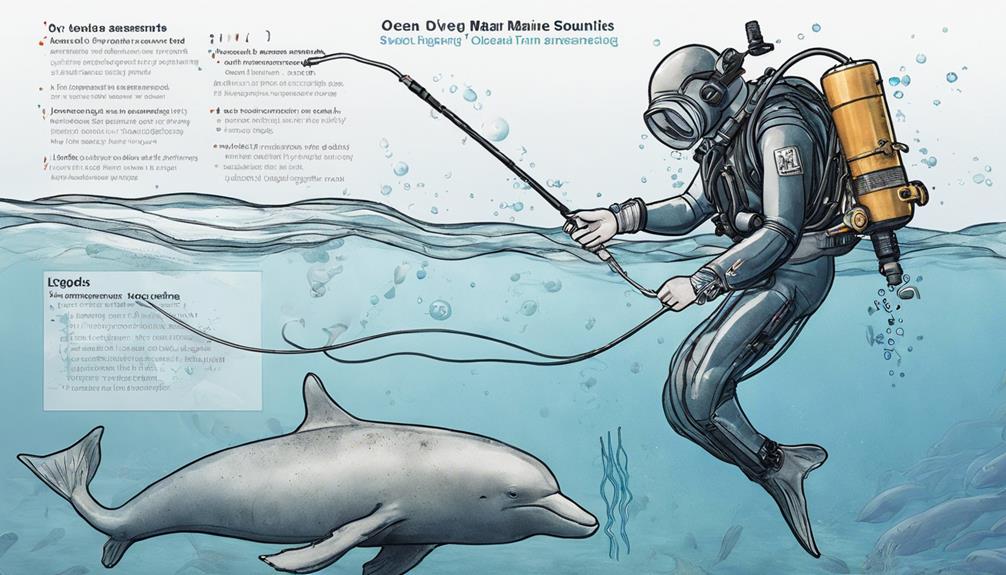Research shows that your personality traits, especially neuroticism, openness, conscientiousness, agreeableness, and extraversion, influence your mental health markedly. Stable traits help you manage emotions better, bounce back from setbacks, and build resilience. High neuroticism, on the other hand, can increase vulnerability to stress, anxiety, and depression. Traits like conscientiousness and agreeableness support emotional regulation and healthy support networks. Exploring these connections will help you understand how to strengthen your mental well-being more effectively.
Key Takeaways
- Research shows that high neuroticism is linked to increased risk of anxiety and depression.
- Conscientiousness and agreeableness are associated with better emotional regulation and mental health resilience.
- Stability in Big Five traits over time enhances emotional resilience and reduces vulnerability to mental health disorders.
- Fluctuations in personality traits can increase susceptibility to stress and emotional difficulties.
- Understanding individual trait profiles helps tailor interventions to improve mental health outcomes.

Understanding the Big Five personality traits can provide valuable insights into mental health. These traits—openness, conscientiousness, extraversion, agreeableness, and neuroticism—offer a framework that helps you understand how you typically think, feel, and behave. When it comes to mental health, your personality traits influence not just your experiences but also how you handle stress and adapt to life’s challenges. For example, personality stability refers to how consistent these traits remain over time, which can impact your emotional resilience. If your personality traits are stable, you’re more likely to maintain a steady emotional state, which helps you bounce back from setbacks more effectively. Conversely, significant fluctuations might make you more vulnerable to mental health issues like anxiety or depression. Recognizing these patterns can guide you in developing strategies to strengthen your emotional resilience, making you better equipped to manage adversity. Additionally, understanding the role of sleep and emotional regulation**** can further support mental health by improving your capacity to cope with stress and maintain mood stability.
Understanding your personality stability helps build emotional resilience and manage mental health challenges effectively.
Your level of neuroticism, one of the Big Five traits, plays a *essential* role in mental health. High neuroticism often correlates with heightened emotional reactivity and increased susceptibility to stress, anxiety, and depression. If you notice yourself reacting intensely to minor setbacks or feeling overwhelmed easily, it’s likely tied to this trait. Understanding this connection can motivate you to adopt coping mechanisms that bolster your emotional resilience, such as mindfulness or cognitive-behavioral techniques. On the other hand, traits like conscientiousness and agreeableness tend to foster healthier emotional regulation. Being organized, disciplined, and empathetic can help you build strong support networks and maintain a positive outlook, both of which are protective factors for mental health.
Personality stability also plays a role in how you respond to life’s inevitable changes. Stable traits mean you’re less likely to experience drastic swings in mood or outlook, providing a buffer against mental health struggles. If you’re aware that your personality tends to shift or fluctuate, you can work proactively to strengthen areas that foster emotional resilience. For instance, developing routines or seeking social support can help stabilize your mood and improve your overall well-being. Understanding these dynamics allows you to take control of your mental health by focusing on nurturing traits that promote resilience and stability.
In essence, understanding the Big Five personality traits gives you a clearer picture of your mental health landscape. By recognizing how personality stability and emotional resilience are interconnected, you can better navigate life’s stresses and setbacks. This awareness empowers you to implement targeted strategies that enhance your emotional well-being, leading to a more balanced and resilient mental state.
Frequently Asked Questions
How Do Big Five Traits Influence Specific Mental Health Disorders?
You might notice that your personality traits influence mental health disorders. For instance, low emotional stability can increase your risk for anxiety and depression, while high neuroticism may lead to personality disorders. Conversely, high extraversion and openness often protect against certain issues. Understanding how these traits connect helps you recognize vulnerabilities and seek targeted support, ultimately improving your mental well-being and managing specific disorders more effectively.
Can Personality Change Over Time and Affect Mental Health?
Did you know that about 40% of personality traits can change over a decade? You can experience personality stability, but environmental influences like life events, relationships, or therapy can lead to meaningful shifts. These changes can positively or negatively affect your mental health, highlighting that your personality isn’t fixed. Being aware of this allows you to seek growth and support, fostering better mental well-being over time.
Are There Cultural Differences in Big Five and Mental Health Links?
You’ll find that cultural differences influence the links between the Big Five traits and mental health. Cross-cultural assessments reveal variations in how traits relate to well-being, partly because cultural stigma impacts how people perceive and report mental health issues. In some cultures, openness or neuroticism might be linked to greater stigma, affecting mental health outcomes. Recognizing these cultural nuances helps you better understand diverse mental health experiences worldwide.
How Do Big Five Traits Predict Treatment Outcomes?
Your Big Five traits can predict treatment outcomes by influencing personality stability and how you respond to therapy. For example, high openness may lead to better engagement, while high neuroticism might require tailored approaches. Recognizing these traits allows clinicians to personalize treatment plans, improving effectiveness. Understanding your personality helps forecast how stable your progress will be and guarantees interventions are suited to your unique needs, boosting the chances of successful recovery.
What Role Do Genetics Play in Personality and Mental Health?
Genetics govern your genes, guiding your growth and giving clues to your character. Genetic predispositions influence your mental health, shaping how you respond to stress and challenges. Heritability estimates reveal how much your personality and mental health traits are passed down from family, fostering a foundation for understanding your unique vulnerabilities and strengths. You inherit more than you realize, impacting your well-being in profound, personal ways.
Conclusion
By understanding how your Big Five traits influence your mental health, you hold the key to revealing your well-being. Think of your personality as a compass, guiding you through life’s storms and sunshine alike. Embracing your strengths and addressing your vulnerabilities can transform challenges into opportunities for growth. Remember, your mind is your greatest landscape—explore it with curiosity, and you’ll discover the resilience and balance that lie within you.









